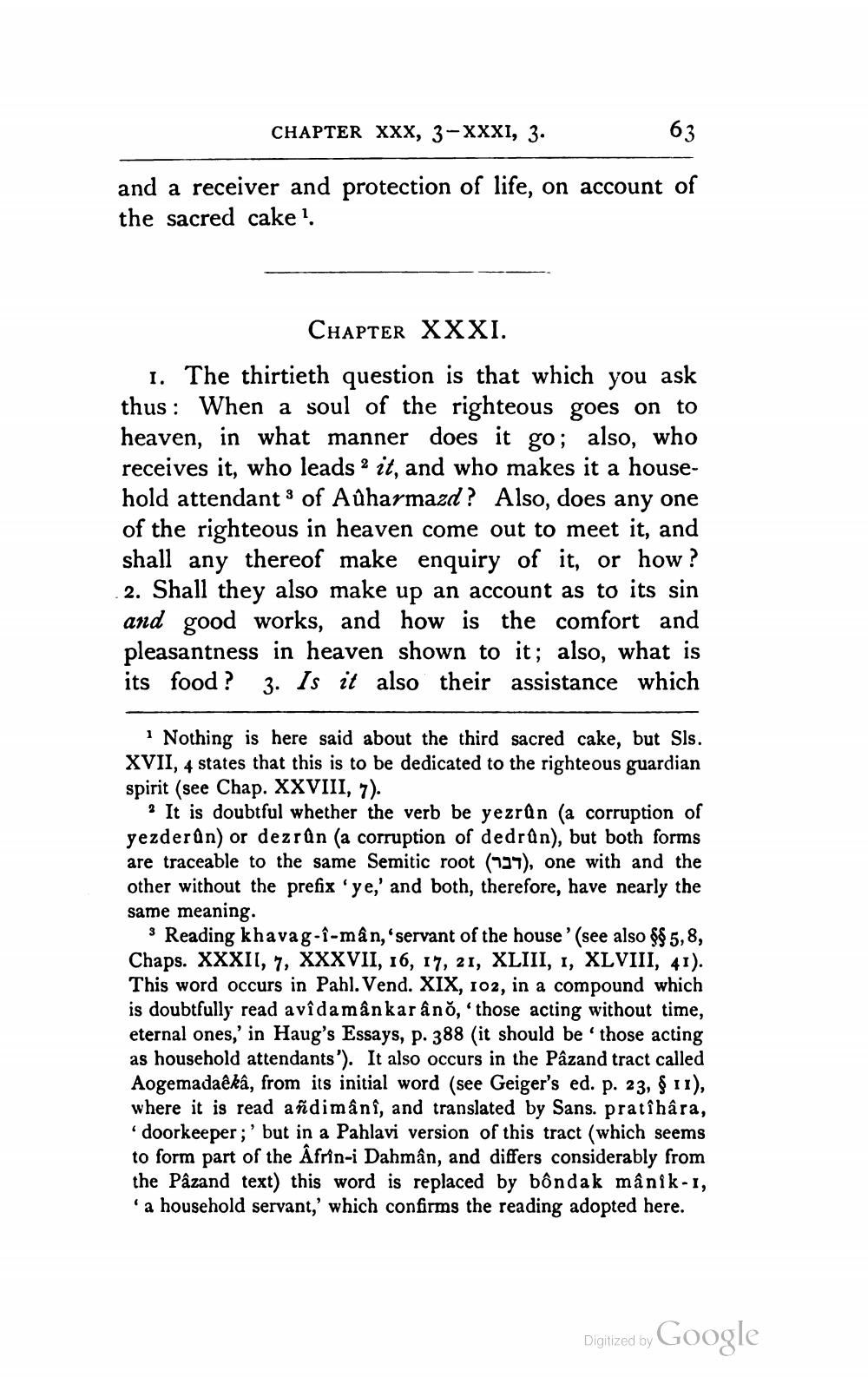________________
CHAPTER XXX, 3-XXXI, 3.
and a receiver and protection of life, on account of the sacred cake 1.
Chapter XXXI. 1. The thirtieth question is that which you ask thus: When a soul of the righteous goes on to heaven, in what manner does it go; also, who receives it, who leads 2 it, and who makes it a household attendants of Allharmazd? Also, does any one of the righteous in heaven come out to meet it, and shall any thereof make enquiry of it, or how? 2. Shall they also make up an account as to its sin and good works, and how is the comfort and pleasantness in heaven shown to it; also, what is its food ? 3. Is it also their assistance which
Nothing is here said about the third sacred cake, but Sls. XVII, 4 states that this is to be dedicated to the righteous guardian spirit (see Chap. XXVIII, 7).
It is doubtful whether the verb be yezrûn (a corruption of yezderûn) or dezran (a corruption of dedrûn), but both forms are traceable to the same Semitic root (737), one with and the other without the prefix 'ye,' and both, therefore, have nearly the same meaning.
3 Reading khavag-i-mân, servant of the house' (see also $$ 5,8, Chaps. XXXII, 7, XXXVII, 16, 17, 21, XLIII, 1, XLVIII, 41). This word occurs in Pahl. Vend. XIX, 102, in a compound which is doubtfully read avîdamânkarână, those acting without time, eternal ones,' in Haug's Essays, p. 388 it should be those acting as household attendants'). It also occurs in the Pâzand tract called Aogemadaêkâ, from its initial word (see Geiger's ed. p. 23, § 11), where it is read andimânî, and translated by Sans. pratîhâra,
doorkeeper;' but in a Pahlavi version of this tract (which seems to form part of the Afrin-i Dahmân, and differs considerably from the Pazand text) this word is replaced by bôndak manik-1, a household servant,' which confirms the reading adopted here.
Digitized by Google




